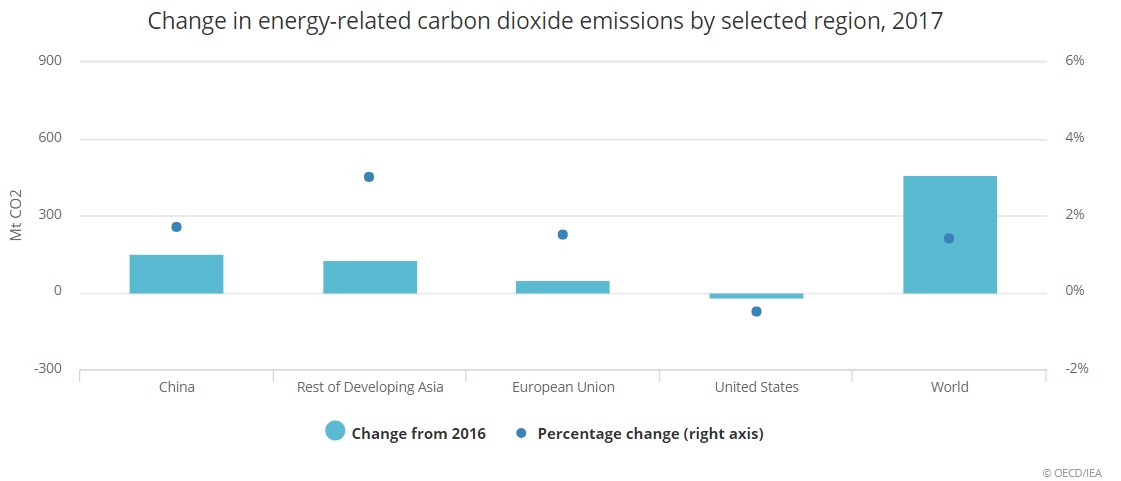Emissions Rising Again: IEA
Global energy-related CO2 emissions grew by 1.4% in 2017, reaching a historic high of 32.5 gigatons (Gt), a resumption of growth after three years of global emissions remaining flat, the International Energy Agency said March 22.
The increase in CO2 emissions, however, was not universal. While most major economies saw a rise, some others experienced declines, including US, UK – coal fired generation is much reduced, thanks to a much higher carbon price than that seen in the European Trading Scheme – Mexico and Japan. The biggest decline came from US, mainly because of higher deployment of renewables, the report said.
CO2 emissions increased by 41.3%, compared with 2000, while global energy demand increased by 40%.

Source: IEA
Renewables saw the highest growth rate of any energy source in 2017, meeting a quarter of global energy demand growth last year. China and US led this unprecedented growth, contributing around half the rise in renewables-based electricity generation, followed by the European Union, India and Japan.
In total, global energy demand grew by 2.1% to 14,050mn tons of oil equivalent (mn toe) in 2017, according to IEA preliminary estimates, more than twice the growth rate in 2016.
Fossil-fuels met over 70% of the growth in energy demand around the world. Natural gas demand increased the most (3%, significantly above the average growth of 1.5% of the last five years), reaching a record share of 22% in total energy demand, the report said.
Oil demand rose by 1.6% or 1.5mn b/d, a rate that was more than twice the annual average seen over the last decade, while coal demand rose about 1% to 3,790mn toe in 2017, reversing the declining trend seen over the last two years.
Improvements in global energy efficiency slowed down, IEA said. “The rate of decline in global energy intensity, defined as the energy consumed per unit of economic output, slowed to only 1.6% in 2017, much lower than the 2.0% improvement seen in 2016.”
IEA boss Fatih Birol said that the significant growth in global energy-related carbon dioxide emissions in 2017 means that current efforts to combat climate change are far from sufficient.



